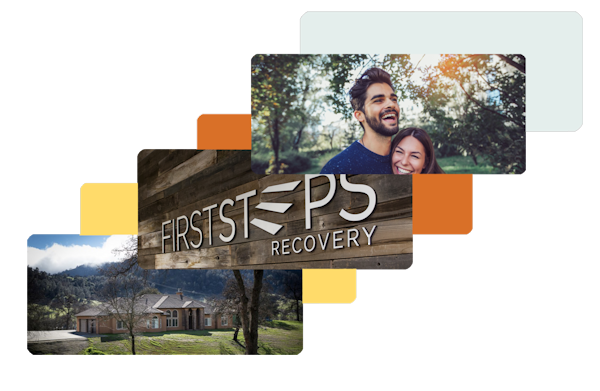Check your insurance benefits for coverage of addiction treatment services.
"*" indicates required fields








First Steps Recovery offers the full continuum of care in addiction recovery in a luxurious and relaxing treatment setting. Our inpatient addiction treatment facility is conveniently located in Clovis, Fresno County, making it your best choice for detox and rehab in Central Valley, California.



Dayatra L.
Melissa B.
Bruce G.
Have questions about how our alumni program works? Let's talk.










First Steps Recovery is an in-network provider with most insurances! Regardless of where you live, our skilled and compassionate addiction treatment counselors in Fresno can help you and your family get the help you need to get on the road to recovery.

We’ve got answers.
Yes – First Steps Recovery is a fully licensed and accredited addiction treatment facility in Fresno, California. Accredited by the Joint Commission, licensed DHCS residential facility for detox, and certified by LegitScript.
Yes – First Steps Recovery accepts PPO insurances and is in-network with most major insurance providers. Please check your coverage for addiction treatment here.
The amount of time a client can expect to spend in our programs here at First Steps Recovery will vary from person to person. We want to ensure that each of our clients gets the time they need in order to develop the coping strategies and tools needed to achieve and maintain long-term sobriety.
Expected Timeline for Addiction Treatment in Fresno, CA
Medical Detox: 7 days for (contingent on substances the person is detoxing from)
Residential Treatment (RTC): 30 days (contingent on insurance company and authorization policy)
Partial Hospitalization Program (PHP): 20 days (contingent on insurance company and authorization policy)
Intensive Outpatient Program (IOP): 60 days (contingent on insurance company and authorization policy)
*Extended support services outpatient including psychiatry, family support therapy, couples therapy, individual therapy, group therapy, bio feedback, TMS are available through our counseling and psychiatry institute in Fresno.
Dr. Curl is the Medical Director and primary on-site provider for First Steps Recovery. He is a Board Certified Internist and Addiction Medicine Specialist having attended the David Geffen School of Medicine at UCLA and completing his residency at Mount Auburn Hospital with Harvard Medical School. Following several years work as an internist and physiatrist (physical medicine and rehabilitation). Dr. Curl completed the Addiction Medicine Fellowship at Howard University in Washington DC and participated as a RAM Scholar (Research in Addiction Medicine). While part of the fellowship, Dr. Curl pursued research investigating the barriers to expanding and improving medication for opioid use disorder. Following his fellowship, Dr. Curl spearheaded the Opiate Use Disorder outpatient clinic and worked in the Department of Psychiatry and Behavioral Sciences within the Howard University Hospital. In 2023, Dr. Curl completed his Board Certification in Addiction Medicine.


© 2024 First Steps Recovery | Privacy Policy | All Rights Reserved.

Have questions about First Steps Recovery? We're here to help.
© Copyright 2023 • First Steps Recovery • All Rights Reserved
